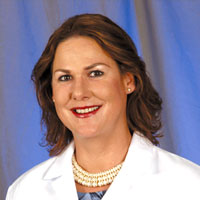CPAP is good for your health!
CPAP (continuous positive airway pressure) is the most successful treatment for obstructive sleep apnea syndrome (OSAS), consisting of breathing pauses during sleep associated with lower blood oxygen levels, and stress to your body.
Upper Airway Infections, such as those associated with “COVID 19”, or “coronavirus”, are also associated with stress to your lungs and body, and lower blood oxygen levels.
Having both, though it has not been proven scientifically (very recent pandemic), likely is “Double Trouble”.
While currently there is no effective treatment if you have COVID 19 except for supportive care, fever and pain reduction, and invasive ventilation in severe cases, there has been over 30 years of research showing the beneficial effects of CPAP on blood oxygenation, sleep quality, and overall health and well being.
The scientific name for CPAP and BiPAP treatment is “Non Invasive Positive Pressure Ventilation” (NIPPV). It may be described as a gentle ventilator keeps blood oxygen within normal limits in most cases, and allows for normal sleep architecture.
Another problem with having sleep apnea is the often severe sleep fragmentation (“broken up sleep”) associated with OSAS. Almost every time there is a pause in breathing, the body has to wake up briefly to catch its breath, and survive. This may happen several hundred times a night, and usually leads to a decrease/lack of the “deep” sleep stages (Slow Wave Sleep), and REM sleep. It is during these sleep stages that immune function gets strengthened, and cells get repaired. Missing these specific sleep stages may lead to decreased protection against disease and infections.
Bottom line:
- If you are a current CPAP user, please use it!
- If you have breathing pauses, snore, and are tired during the day (symptoms of sleep apnea), please get diagnosed and treated!
- Please sleep enough (7 to 8 hours/night).
This message is brought to you by Medical Director of Sleep Center Hawaii, and Guam Sleep Center Dr. Gabriele M. Barthlen, M.D., Ph.D., former director of the sleep labs at Mount Sinai Medical Center, and New York Hospital (Cornell) in New York.
Patient and staff guidelines regarding Philips Respironics recall of PAP machines
Dr. Barthlen (ABSM Board Certified increase risks Sleep Specialist) recommends the following:
- Discontinue your cleaning devices (such as so clean).
- Check with your primary care provider as to possible discontinuation of your PAP machine.
- We recommend that patients with recalled PAP devices discontinue using the machine and get a replacement.
- We can write a prescription for replacement for our patients; check with our office staff. You may also ask your primary care provider to write the prescription. Phillips Respironics has already started sending replacement devices. We will continue to update as more information from the manufacturer becomes available.
Further Information:
AASM Information
Philips Respironics Information
Philips Respironics FAQs







